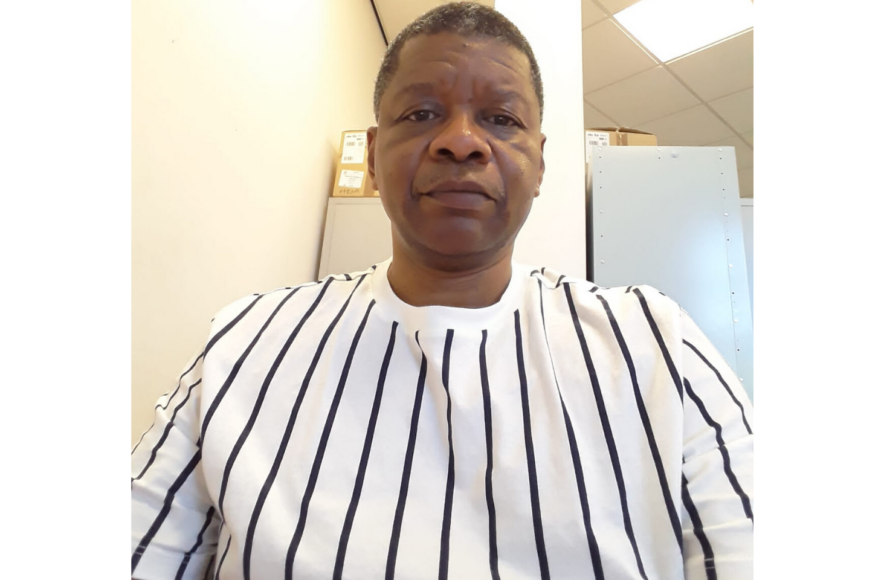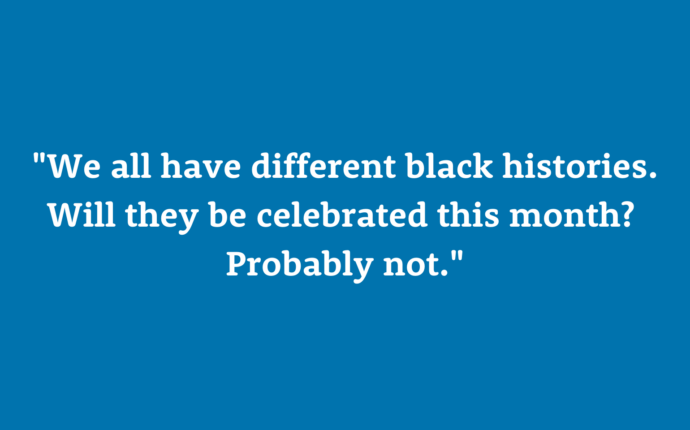‘More can still be done’: Shared Lives Coordinator Larry Mloyi on equality and diversity for Black History Month

Being black, British and a born-again Christian
I am a born-again Christian and I believe that God created us all. If a white person needed a kidney, I can still donate one to them. The colour of the blood is the same.
Obviously it does matter to some people though. There are some places where you really feel that you are black.
There are some people that even when you first meet them, you can tell that they are prejudiced against you because you are black.
In the early 2000s, I was looking for a DHL branch in Liverpool and the sat nav couldn’t find it. I stopped and asked some people on the street where it was. They were very rude and snapped at me saying ‘No, there is no DHL here’ but the neighbours were very polite and explained where it was.
It pains at the time but I don’t give racists the attention that they want. I will pretend as if they have done nothing.
I think God has made me like this. I don’t consider myself ‘religious’ but church is a very important part of my life. I always refer to the teachings of the Bible.
Black History Month
To me, black history is something I celebrate all year round.
People shouldn’t just celebrate Black History Month in October and then put it in the cooler and forget about it for the other months.
If you want to learn, speak to your black colleagues, family members or friends. Do your research. Spread it out across the year.
There are so many black cultures and smaller nations that are forgotten about. Africa is a continent just like Europe – it’s not one country or one African language.
We all have different black histories.
Will they be celebrated this month? Probably not.

From Zimbabwe to the UK
I consider myself British-Zimbabwean but my heritage is Zulu which really came from South Africa.
Most people ask me if I am Nigerian and then say ‘So where are you from then?’
I was born in South Africa but we moved to Zimbabwe when I was about four or five so I grew up there and completed most of my schooling there.
I started working in Zimbabwe but I wanted to further my education and my mum was already living in Manchester so I decided to move to the UK when I was 28.
I was already a man of my own and I wanted to live by myself so I got a room for university. I studied Accounting and Finance.
Once I finished my degree, I moved to Liverpool.
Life as a support worker
I started doing part-time work as a mental health support worker in adult services.
My passion for social care grew as I saw good outcomes for the people I supported, helping them look for work.
It made me feel like I was giving something back to the community, helping people get back on their feet again.
I then worked in supported living at the same company and supported people to move into their own accommodation and live independently.
I joined United Response in 2017 as a Lead Senior Support Worker for young adults aged between 17 and 24.
They offered me a job the same day as my interview – it was really nice to feel so wanted.
Shared Lives
In 2019, I became a Shared Lives Coordinator.
Shared Lives is a service we provide in the Merseyside area which supports people with learning disabilities and autism to live with local people in their homes.
Some of the families and the people we support call each other ‘brother’, ‘sister’, ‘mum’ and ‘dad’ so they are really integrated as part of the family.
My role is to co-ordinate between our Shared Lives carers and local services, whether that’s social services or GPs, to help them get what they need.
At the same time, I’m also a close contact for the people we support to make sure they are happy with where they’re living.
Many of the people we support are used to going out during the day so the past 18 months have been difficult for everybody in United Response.
But to see someone we support doing something they really enjoy and blossoming that makes me happy. To see the carers happy as well, I know that I am supporting them too.
‘More can still be done’ – improving diversity at United Response
Equality and diversity shouldn’t just be spoken about in policies, we need to see it.
Throughout my career, I have attended a lot of meetings where I am the only one from an ethnic minority background. There is still inequality and more can still be done.
That is why I became a United Voice representative and I joined our Diversity Forum.
This content is part of our Black History Month series where we are sharing stories, celebrating and amplifying black voices from history, across United Response and the people we support.